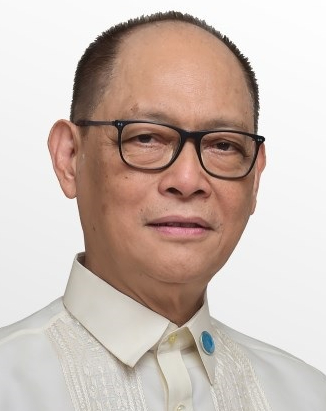


Stressing that reviving the economy is the first priority of his administration, the Philippines’ President-elect Ferdinand “Bongbong” Marcos Jr. on Thursday ( May 26 ) revealed some members of his economic team, led by central bank governor Benjamin Diokno as finance secretary.
Commenting on his appointment in the incoming administration, Diokno says: “It is an honour to serve the Filipino people in my current and any future capacity. I am grateful and humbled by the trust given to me by the President-elect to help his administration manage the country’s fiscal affairs.”
Diokno, together with outgoing finance secretary Carlos Dominguez III, played an important role in steering the economy during the Covid-19 crisis, which saw millions of jobs lost and economic activity collapse amid strict lockdowns and related restrictions.
One of the world’s fastest-growing economies before the pandemic with an average annual expansion rate of 6%, the Philippines witnessed its worst recession yet in 2020, its GDP plunging by 9.6% for the whole year. The economy was quick to recover, expanding by 5.6% in 2021. The country reported a forecast-beating GDP growth of 8.3% in the first quarter of 2022, as consumer spending surged.
The country’s economic outlook, however, is clouded by a heavy debt burden resulting from Covid relief and recovery efforts, and rising inflation, especially energy and food prices.
“Prior to the pandemic, the Philippines was poised to transition into an upper-middle-income economy, thanks largely to sound economic policies put in place over decades by multiple administrations,” Diokno says. “As the country transitions to the next administration, it is my view that continuity of sound macro and fiscal policies is important to achieve the stronger post-Covid Philippine economy that we all aim for.”
“As finance secretary, I will strive to continue prudently and carefully balancing the need to support economic growth, on one hand, and to maintain fiscal discipline, on the other,” Diokno adds.
Under Diokno’s leadership, the Bangko Sentral ng Pilipinas ( BSP ) was among the first central banks in the world to decisively respond to the Covid crisis, launching prompt and extraordinary monetary measures to cushion the economy.
With his appointment to the finance portfolio, Diokno will cut short his term as BSP governor, which was scheduled to end in July 2023. He was appointed by outgoing President Rodrigo Duterte as BSP chief in March 2019.
Alfred Pascual, former president of the University of the Philippines, the country’s premier state university, has also accepted Marcos’s invitation to serve as his trade and industry secretary.
Marcos has also announced that former socio-economic planning secretary Arsenio Balisacan would return as head of the National Economic and Development Authority, a post he had held during the administration of former president Benigno Aquino III. He also said he plans to nominate Manuel Bonoan, president and chief executive officer of SMC Tollways, as secretary of public works and highways.
“I know the economic team is critical and that is what people are looking to," Marcos said an interview with media representatives. "I think we have found the best people for it who are able to look forward and anticipate what the conditions will be for the Philippines and the rest of the world in the coming years.”
Marcos assumes office as the country's 17th president on June 30, after winning the May 9 election, garnering 58.8% of the vote. His victory marks the return of a once-dominant political dynasty to power. His father, the late Ferdinand Marcos, was ousted in a largely peaceful "people power revolution" in 1986.